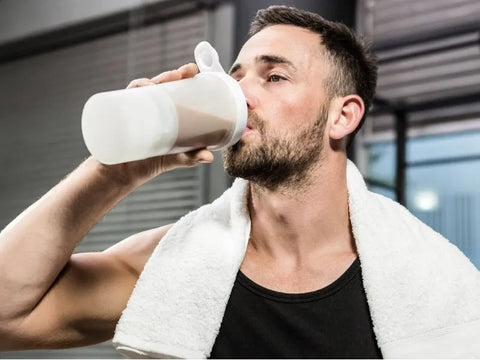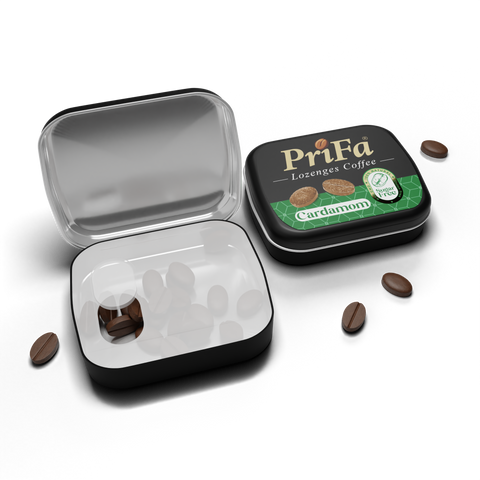
Is Caffeine Good for Headache?
Share
Can Caffeine Actually Be Good for Headaches?
Headaches are a universal experience, a throbbing reminder that sometimes our bodies just don't want to cooperate, While countless remedies promise relief, from pain relievers to essential oils, one unlikely ally often gets overlooked: caffeine.
But is caffeine good for headaches? The answer, like most things in life, is a bit more nuanced than a simple yes or no.
Understanding Caffeine's Role in Headache Relief
Caffeine, that ubiquitous stimulant found in coffee, tea, chocolate, and even some medications, has a surprisingly complex relationship with headaches. It can be both a friend and foe, capable of either easing the pain or triggering it in the first place.
How Caffeine Affects the Nervous System and Headache Relief
Caffeine exerts its effects by interacting with our nervous system. It acts as a vasoconstrictor, meaning it narrows blood vessels, including those in the brain.
This constriction can be particularly helpful during a headache, where blood vessels often dilate (expand), putting pressure on surrounding nerves and causing pain.
The Mechanism of Caffeine in Alleviating Headaches
Imagine your blood vessels as highways, and blood flow as traffic. When a headache hits, it's like a traffic jam in your head, with dilated blood vessels creating congestion. Caffeine acts as a traffic controller, narrowing those highways and easing the flow, thus reducing pressure and pain. This effect is amplified by caffeine's ability to enhance the absorption of common pain relievers like ibuprofen and acetaminophen, making them work faster and more effectively.
When Is Caffeine Effective for Headaches?
While caffeine can be beneficial, it's not a magic bullet for all headaches.
Types of Headaches That May Benefit from Caffeine
Caffeine has shown particular promise in relieving tension headaches, the most common type characterized by a tight band-like sensation around the head. It can also be helpful for migraines, especially when consumed early in the attack, before pain reaches its peak.
Timing and Dosage: How Much Caffeine Is Needed?
The key to utilizing caffeine effectively lies in timing and dosage. Consuming caffeine at the first sign of a headache can often nip it in the bud. However, moderation is crucial. While a small amount of caffeine (equivalent to a cup of coffee) can be beneficial, excessive intake can backfire, leading to rebound headaches and dependence
We will also learn about the optimal dosage, potential side effects, and natural alternatives to caffeine that can help alleviate headaches. So, follow this informative article by Prifaco!
Is caffeine good for headache?
Numerous studies have shown that caffeine can be effective in relieving headaches because:
- It enhances the effectiveness of some headache pain relievers.
- In certain types of headaches, blood vessels in the brain may dilate or swell, expanding into surrounding tissues and causing pain. Therefore, consuming caffeine works to constrict these blood vessels, alleviating some headache pain.
Caffeine can be effective in relieving certain types of headaches. It works by constricting blood vessels, which can help alleviate the pain associated with some headaches.
Additionally, caffeine can enhance the effectiveness of certain pain-relief medications when used in combination. However, it's essential to be mindful of caffeine intake, as excessive consumption can lead to caffeine withdrawal headaches, and other side effects. The suitability of caffeine for headache relief may vary from person to person, so it's advisable to consult with a healthcare professional for personalized advice.
The optimal dose of caffeine to treat headaches
According to studies conducted to determine the appropriate caffeine dosage for treating headaches, it was found that the ideal dosage varies depending on individual circumstances and the type of headache.
Experimental data has shown that caffeine taken at doses ranging from 25 to 100 mg has a significant pain-relieving effect.
As a result, considering individual differences in needs is crucial to maximize the benefits of caffeine.

Read more: learn about the safe daily limit of caffeine.
Side effects of excessive caffeine consumption during headaches
Numerous studies have clarified that excessive caffeine intake can lead to:
- Increased tension.
- Anxiety.
- Sleep disturbances.
- Headaches.
Therefore, it is advisable to consume caffeine cautiously to avoid its negative side effects.
Natural alternatives to caffeine to treat headaches
There are natural alternatives to caffeine for treating headaches. Here are a few:
- Hydration: Dehydration can often lead to headaches. Drinking plenty of water throughout the day can help prevent and alleviate headaches.
- Ginger: Ginger has anti-inflammatory properties and can help reduce the intensity of headaches.
- Peppermint Oil: Applying diluted peppermint oil to your temples can provide relief for tension headaches.
- Lavender Oil: Inhaling the aroma of lavender oil or applying it to your temples can help ease migraine headaches.
- Riboflavin (Vitamin B2): This vitamin has been found to reduce the frequency and intensity of migraines when taken regularly as a supplement.
- Magnesium: Adequate magnesium intake may help reduce the frequency and severity of migraines. You can get magnesium from foods like nuts, seeds, and leafy greens.
- Butterbur: Butterbur is an herbal remedy that has shown promise in reducing the frequency and severity of migraines.
- Acupressure and Massage: Certain acupressure techniques and massages can help relieve headache pain.
- Relaxation Techniques: Practicing relaxation methods like deep breathing, yoga, or meditation can reduce stress and tension, which are common headache triggers.
- Dietary Adjustments: Some people find relief from headaches by avoiding trigger foods such as processed meats, alcohol, and foods containing artificial additives like MSG.

It's important to note that the effectiveness of these natural remedies can vary from person to person. If you suffer from frequent or severe headaches, it's advisable to consult with a healthcare professional to determine the best approach for your specific condition.
The best sources of caffeine to treat headaches
One of the most commonly used sources of caffeine for headache relief is coffee. However, the busy lifestyles of many people often prevent them from drinking it when they need it. That's why Prifaco offers coffee tablets as a great alternative. These tablets are made from premium coffee beans rich in caffeine, along with some natural ingredients that support your body's energy.
They not only provide the taste and flavor of coffee but are also a convenient option for those on the go. You can simply place them in your mouth and enjoy the caffeine boost. What's more, they don't have the negative side effects associated with caffeine products and can provide an instant burst of energy.
Order them now!

Read more about :Why PRIFA Coffee Tablets are the Best Choice
A comparison between sources of caffeine and their effect on headaches
|
|
Coffee |
Prifa coffee tablets |
|
Effect speed |
Within 30-60 minutes |
Within 5-10 minutes |
|
Amount of caffeine |
80-100 mg per cup |
10-30 mg per tablet, depending on flavor |
|
Control the dose of caffeine |
Inaccurate |
Accurate |
|
Intake way |
Hot or cold drink |
Swallowable tablets, in three flavors (latte, cardamom, espresso) |
|
side effects |
Anxiety and stomach upset in some people |
Light on the stomach, and has no side effects |
Frequently Asked Questions
Does caffeine help tension headaches?
Yes, caffeine can help relieve tension headaches for some people.
Does caffeine relieve headaches?
Yes, caffeine can relieve certain types of headaches, including tension headaches and migraines.
Does drinking coffee help with headaches?
Yes, drinking coffee can help with headaches due to its caffeine content.
Why is caffeine good for headaches?
Caffeine is good for headaches because:
-
It constricts blood vessels in the brain, which can reduce pain
-
It enhances the effectiveness of pain relievers
-
It blocks adenosine receptors, which can decrease pain perception
-
It may increase the production of dopamine, which can improve mood and pain tolerance
What kind of headache does caffeine help?
Caffeine can be helpful for both tension headaches and migraines. This is why it is an ingredient in many common pain relievers, as it can enhance their effectiveness. Sometimes, caffeine alone can even stop the pain when consumed.
Does caffeine help with pain?
Caffeine can reduce the perception of pain by centrally blocking adenosine receptors that influence pain signals or by blocking adenosine receptors around sensory transmitters.
Can caffeine cause migraines?
Caffeine can cause headaches in two situations. Firstly, when consumed excessively, it can overstimulate and increase brain activity, leading to a headache. Secondly, when one abruptly stops consuming caffeine, withdrawal symptoms, including headaches, can occur.

Get Prifaco coffee tablets now and bid your headaches farewell with just one pill!
If you need more information about Prifaco tablets, feel free to contact us at +01 23456789.
Edited by: Prifaco©
